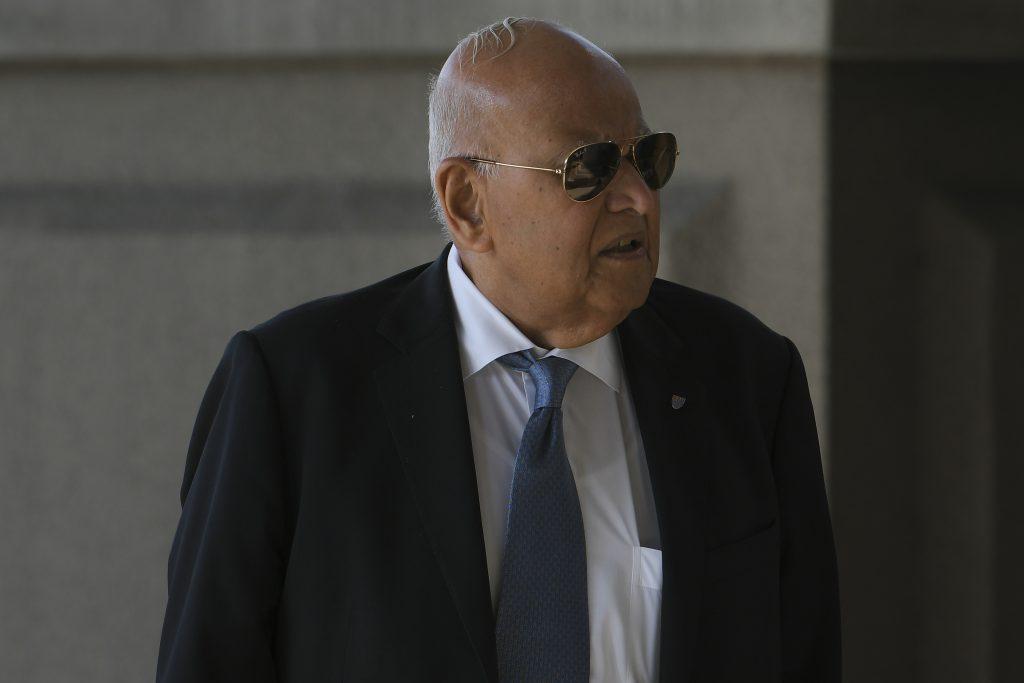Agong does what govt says, former top judge weighs in on renewed emergency debate
Gopal Sri Ram says whether in ending the emergency or calling for Parliament to convene, the constitution is clear that only the government can decide.
Just In
Any decision to end the virus state of emergency ultimately rests in the hands of the government of the day, says a prominent retired Federal Court judge amid renewed debate on the constitutional powers of the Agong in the wake of recent developments.
Gopal Sri Ram, one of Malaysia’s most prominent lawyers who served as an ad hoc prosecutor under both the former and present governments, said the Agong has no independent discretion except in three matters: the appointment of the prime minister, the dissolution of Parliament, and requests for a meeting of the Conference of Rulers.
He said these three areas of discretion are clearly spelt out in Article 40(2) of the Federal Constitution.
“Only in these three matters does the king have discretion. All other matters, he has to act on the advice of the Cabinet,” Sri Ram said to MalaysiaNow.
Sri Ram has represented opposition leader Anwar Ibrahim in his sodomy appeals and has been appointed by the government to lead the prosecutions of Najib Razak, Rosmah Mansor and others in the 1MDB-related trials.
Asked for his response to a view being promoted by some politicians as well as their associates in the legal circles suggesting that the king has the power to re-convene Dewan Rakyat proceedings, Sri Ram insisted that there is no such provision.
“There’s no choice. The Agong has to act on the advice of the Cabinet. That answers most of your questions,” he said.
He referred to Article 40 of the constitution, which states that the Agong shall act “according to the advice of the Cabinet or of a minister acting under the general authority of the Cabinet”.
“In the exercise of his functions under this constitution or federal law, where the Yang di-Pertuan Agong is to act in accordance with advice, on advice, or after considering advice, the Yang di-Pertuan Agong shall accept and act in accordance with such advice,” Clause 1A of Article 40 reads.
Sri Ram said in the case of the present debate on the Agong’s powers in an extension of the state of emergency, the same principle applies.
“Everything is controlled by the Cabinet,” said the former judge who served in both the Court of Appeal and Federal Court, during which time he delivered more than 800 judgments which are considered leading legal authorities and precedents in Malaysian and Commonwealth courts.
Sri Ram said there was also no question arising on the legality of the present emergency in the absence of the parliamentary process.
This was in response to complaints that Article 150(3), which states that the proclamation must be laid before both Houses of Parliament, had not been followed.
He said any proclamation under the constitution must be laid before Parliament only when it sits.
“So when the Parliament sitting is postponed, the emergency carries on,” he added.
Sri Ram’s views come in the wake of a variety of suggestions from politicians on containing the Covid-19 virus, following the Agong’s recent decision to meet with political party leaders from across the divide.
While former prime minister Dr Mahathir Mohamad called for a national operations council similar to the one set up in the aftermath of the 1969 racial riots, leaders from Pakatan Harapan (PH) said the state of emergency must be terminated and Parliament re-convened.
The state of emergency was declared in January this year amid a continuous spike in daily Covid-19 cases, and in the wake of threats from a group of Umno MPs to revoke support for Prime Minister Muhyiddin Yassin in order to topple him.
As no opposition bloc has the numbers to form the government, such a move would lead to snap polls, a scenario that health director-general Dr Noor Hisham Abdullah has repeatedly warned against.
Muhyiddin, who was named by the Agong as prime minister following the collapse of the PH government in early 2020, had promised to call for elections subject to the Covid-19 situation.
Since the Sabah state polls in September, cases have been on the rise. The latest development saw the government agreeing to implement a full lockdown last month to ease the pressure on hospital facilities nationwide.
Subscribe to our newsletter
To be updated with all the latest news and analyses daily.
